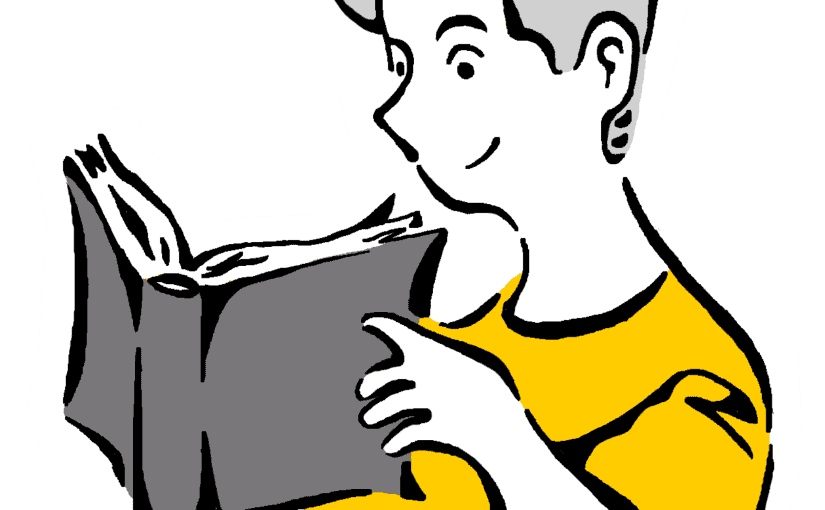What’s the best way to take notes for your classes? What should you think about when planning for your career? How can you learn to use your phone less?
I’m glad you asked!
The books in this list will give you a broad idea of how to design your career, how to take notes on what you learn, how to minimize distractions, and how to focus on the most important areas of your life. All of these topics are important things to think about as a student, and I hope you leave here with a couple of books you can pick up and learn from.
Let’s dive in.
Range by David Epstein
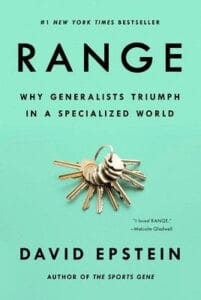
You should probably start thinking about your career. How do you figure out what type of work you enjoy? How will you make yourself attractive to employers? How will you advance quickly?
It’s pretty scary stuff.
Range will give you a unique perspective on these questions. At a time when most people tell you to specialize in one specific field, David Epstein argues for being a generalist, at least at the beginning of your career.
This book is best for students who are thinking about the next steps in their lives.
Key Quote:
“First act and then think…We discover the possibilities by doing, by trying new activities, building new networks, finding new role models. We learn who we are in practice, not in theory.”
So Good They Can’t Ignore You by Cal Newport
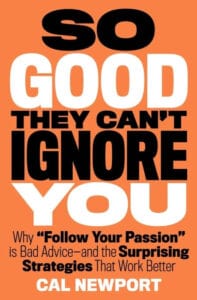
Don’t sell yourself on the ideas from Range too quickly, because So Good They Can’t Ignore You has a slightly different perspective. Cal Newport argues that you should specialize in one field, so you can create incredible work. But you don’t do this by following your passions right now. Doing great work will help you become passionate about it. It’s less about what you do and more about how you do it.
This book is best for students who are trying to figure out what they want to do with their life.
Key Quote:
“The happiest, most passionate employees are not those who followed their passion into a position, but instead those who have been around long enough to become good at what they do.”
How to Take Smart Notes by Sönke Ahrens
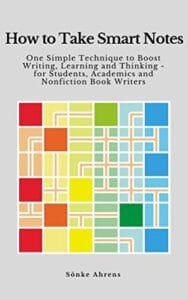
This book is mainly about taking notes on what you read and think, and turning them into writing. However, it jumps through all sorts of topics that are applicable to students.
Is taking lecture notes by hand better than typing them out? What’s the best way to reward yourself for completing your work? How do you organize your notes so they’re easy to reference later? How to Take Smart Notes will answer all of these questions.
This book is best for students who need help in classes that require a lot of essays or research.
Key Quote:
“More often than not, reading is not accompanied by taking notes, which is, in terms of writing, almost as valuable as not having read at all.”
Digital Minimalism by Cal Newport
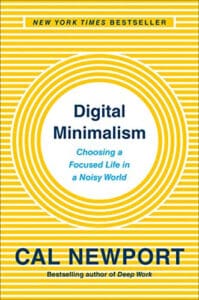
Being a student can drastically increase the amount of noise in your digital life. Facebook groups, class group chats, and emails from everyone under the sun. It can get overwhelming. Even if it isn’t overwhelming, it’s still a huge distraction.
Digital Minimalism argues for a different way to treat your digital tools. Instead of treating every form of communication as essential, what if you disconnected from it all for long periods every day? And instead of using every app or website that seems useful, what if you had a high bar for the digital tools you adopted?
Digital Minimalism will help you control your digital life at a time when it could get very out of control.
This book is best for students who feel overwhelmed by the role of technology in their life.
Key Quote:
“Digital Minimalism: A philosophy of technology use in which you focus your online time on a small number of carefully selected and optimized activities that strongly support things you value, and then happily miss out on everything else.”
Essentialism by Greg McKeown
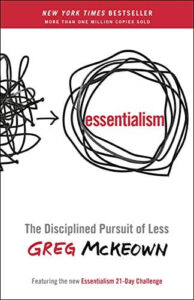
Most of us try to do too much. It’s hard to say no to interesting work opportunities, cool social events, and useful school organizations. But saying yes to one thing is saying no to 1,000 others. Essentialism argues for doing less, but better. By focusing on the few essential items in your life, you can invest deeply in what is important, instead of shallowly in whatever seems mildly useful.
This book is best for students who feel like they always have too much to do.
Key Quote:
“You cannot overestimate the unimportance of practically everything.”
Self-help books can be a valuable resource for students looking to improve their productivity and focus. The books listed here cover a range of topics, from career development to digital minimalism, and offer unique perspectives on how to approach these areas of your life.
However, it’s important to remember that reading alone won’t make you more productive. It’s the actions you take and the habits you develop that will ultimately make a difference in your life. So, use these books as a starting point and take action to achieve your goals and make student life easier!
Tips From Around the Internet
Resource: College Student Discounts
A large list of student discounts for college students
Tool: Anki
A powerful and free alternative to Quizlet
Video: How to Use the Leitner System
A proven system for studying flashcards

